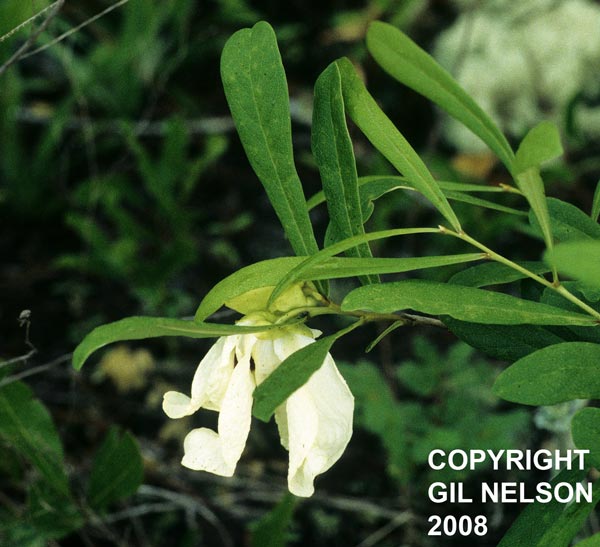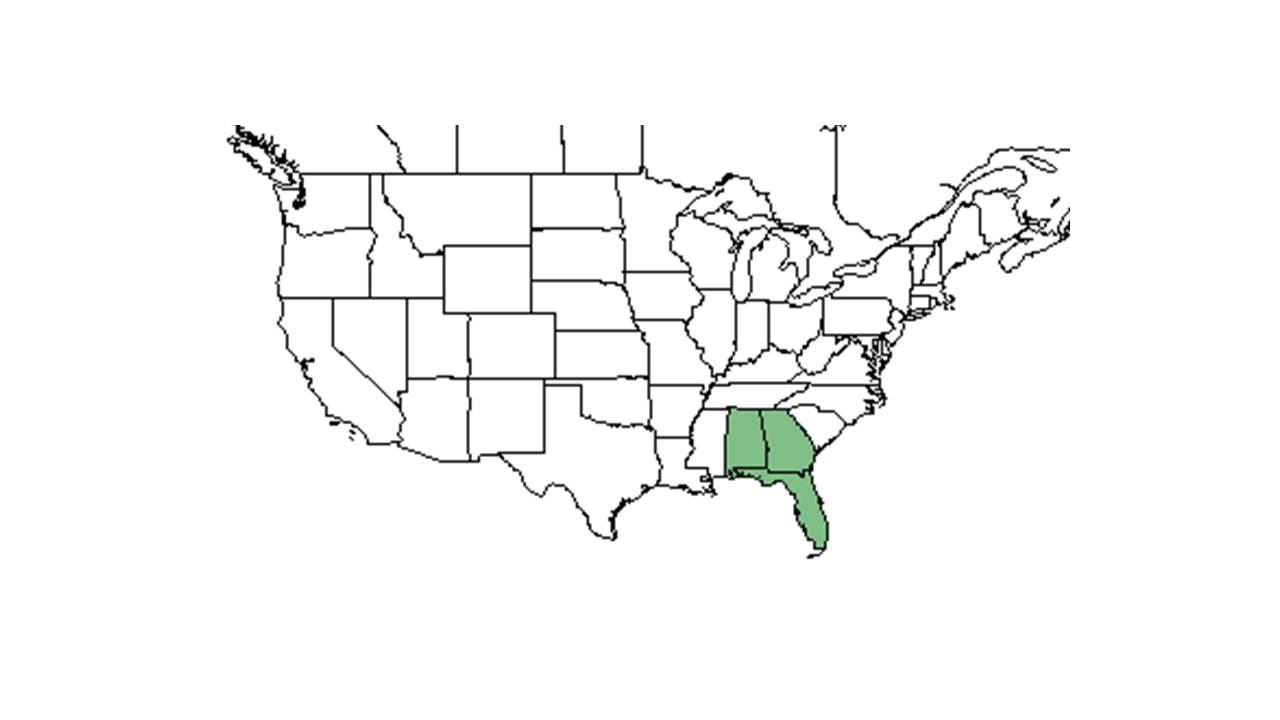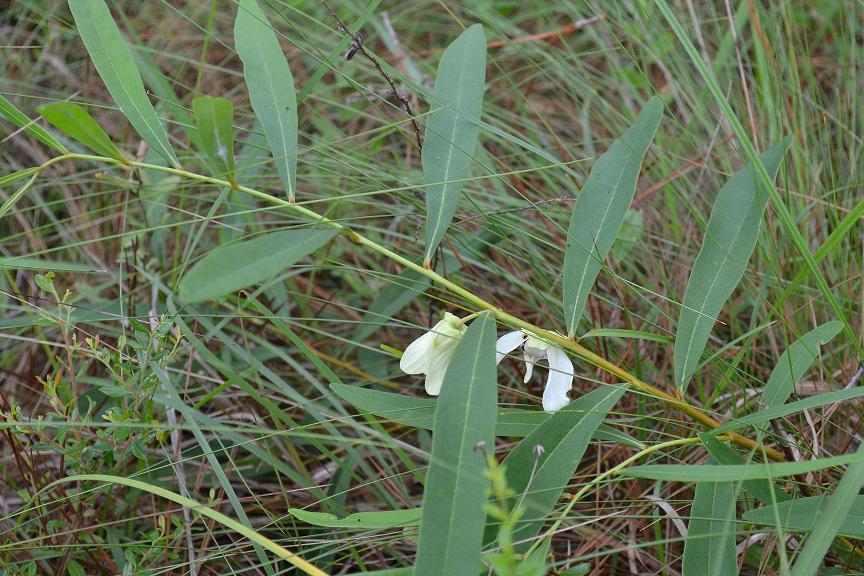Difference between revisions of "Asimina angustifolia"
(→Description) |
(→Description) |
||
| Line 19: | Line 19: | ||
==Description== | ==Description== | ||
<!-- Basic life history facts such as annual/perrenial, monoecious/dioecious, root morphology, seed type, etc. --> | <!-- Basic life history facts such as annual/perrenial, monoecious/dioecious, root morphology, seed type, etc. --> | ||
| − | Common Name: | + | Common Name: Slimleaf Pawpaw |
==Distribution== | ==Distribution== | ||
Revision as of 13:07, 6 July 2015
| Asimina angustifolia | |
|---|---|

| |
| photo by Gil Nelson | |
| Scientific classification | |
| Kingdom: | Plantae |
| Division: | Magnoliophyta - Flowering plants |
| Class: | Magnoliopsida - Dicotyledons |
| Order: | Magnoliales |
| Family: | Annonaceae |
| Genus: | Asimina |
| Species: | A. angustifolia |
| Binomial name | |
| Asimina angustifolia Raf. | |

| |
| Natural range of Asimina angustifolia from USDA NRCS Plants Database. | |
Contents
Description
Common Name: Slimleaf Pawpaw
Distribution
Ecology
Habitat
Growing in what was previously upland sandhill longleaf pine- wiregrass ecosystem. [1] In Heuberger’s study, they observed Asiminia in burned and in unburned patches. Frequently burned longleaf pine-wiregrass uplands (Ultisols) and longleaf wiregrass sandhills (Entisols) in north Florida and southern Georgia. Asimina angustifolia is predominately in the native groundcover with a statistical affinity in upland pinelands of South Georgia (Ostertag and Robertson 2007).
Phenology
Seed dispersal
Seed bank and germination
Fire ecology
Resprouts and flowers within two months of burning. KMR
Pollination
Use by animals
Diseases and parasites
Conservation and Management
Requires frequent fire and protection from soil disturbance.
Cultivation and restoration
Photo Gallery
References and notes
Ostertag, T.E., and K.M. Robertson. 2007. A comparison of native versus old-field vegetation in upland pinelands managed with frequent fire, South Georgia, USA. Pages 109–120 in R.E. Masters and K.E.M. Galley (eds.). Proceedings of the 23rd Tall Timbers Fire Ecology Conference: Fire in Grassland and Shrubland Ecosystems.
- ↑ Heuberger, K. A. and F. E. Putz (2003). "Fire in the suburbs: ecological impacts of prescribed fire in small remnants of longleaf pine (Pinus palustris) sandhill." Restoration Ecology 11: 72-81.
